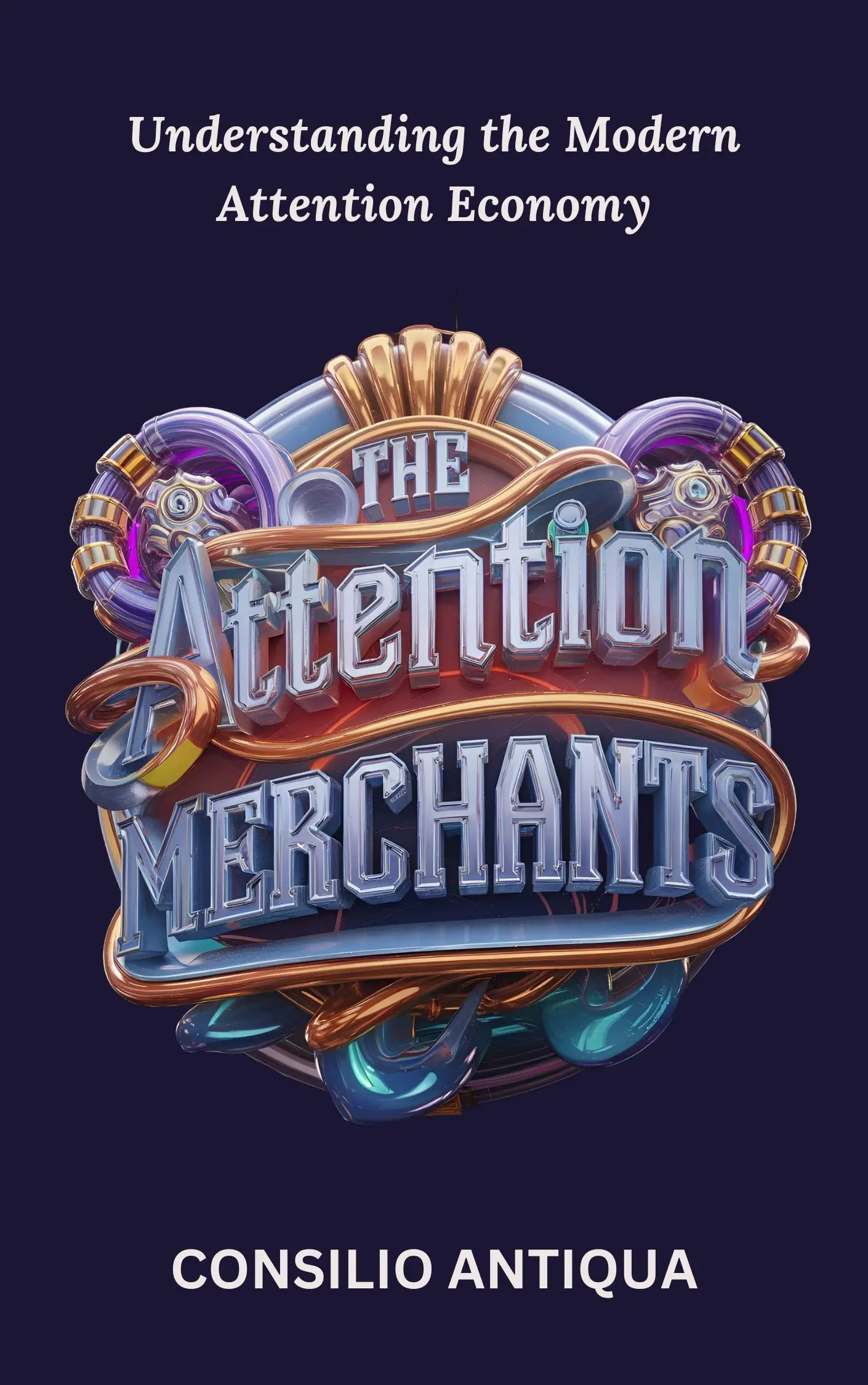
The Attention Merchants | Chapter 17. The Attention Economy and Mental Health
Chapter 17. The Attention Economy and Mental Health
Imagine waking up to the gentle buzz of your phone. Before even opening your eyes, you reach for it, drawn in by the promise of new messages, notifications, and updates. Your morning coffee becomes a backdrop to scrolling through social media feeds, catching up on news headlines, and responding to emails. Sound familiar? This is the reality for many of us in the age of the attention economy, where our focus is constantly pulled in countless directions. While the digital world offers incredible opportunities for connection and learning, it also presents a significant challenge to our mental well-being.
In this new economy, our attention has become a valuable commodity. Companies compete fiercely to capture and hold it, recognizing its power to influence our choices and behaviors. Every notification, every advertisement, every carefully curated social media post is designed with a specific purpose: to keep us engaged, scrolling, and clicking. This constant demand for our attention can leave us feeling mentally exhausted, overwhelmed, and unable to fully focus on the things that truly matter.
Think about your own experience. How often do you find yourself checking your phone without even realizing why? How many times have you started a task only to be interrupted by a notification or the urge to browse social media? These digital distractions, while seemingly harmless on the surface, can have a cumulative effect on our mental health. Studies have shown a link between excessive social media use and increased levels of anxiety, depression, and loneliness. The constant stream of information and the pressure to stay connected can lead to a state of mental overload, making it difficult to relax, unwind, and recharge.
The rise of artificial intelligence (AI) has further intensified the battle for our attention. AI algorithms are now used to personalize our online experiences, tailoring content and recommendations to our individual preferences. While this can be helpful in some ways, it also means that we are constantly exposed to information and stimuli that are designed to keep us hooked. Think of it like a fisherman using a specific type of lure to attract a particular fish – in this case, our attention is the fish, and the algorithms are the lures. These sophisticated techniques can make it incredibly difficult to resist the pull of the digital world, even when we know it's time to disconnect.
The constant bombardment of information and the pressure to stay engaged can also erode our mental integrity – our ability to focus, think critically, and make conscious decisions about how we spend our time and energy. When our attention is constantly fragmented, it becomes harder to engage in deep work, to be fully present in our relationships, and to simply enjoy the moment. We may find ourselves constantly switching between tasks, feeling scattered and unable to fully commit to anything.
So, how can we reclaim control of our attention and protect our mental well-being in this hyper-connected world? The good news is that there are practical strategies we can implement to manage our digital engagement and cultivate a healthier relationship with technology. One powerful approach is the digital detox. This involves consciously setting aside time to disconnect from our devices and engage in activities that promote mental clarity and relaxation. It could be as simple as taking a walk in nature without your phone, spending an evening reading a book, or having a conversation with a loved one without the distraction of screens.
Another valuable tool is mindfulness and meditation. These practices help us train our attention, strengthening our ability to focus on the present moment and resist the urge to get swept away by distractions. Even a few minutes of daily meditation can make a significant difference in our ability to manage stress, improve focus, and cultivate a sense of inner calm.
In addition to these practices, there are also specific digital health strategies we can adopt. Many smartphones now come with built-in features that allow us to track our screen time, set limits on app usage, and schedule "do not disturb" periods. There are also numerous apps available that can help us manage our digital habits and create a healthier relationship with technology.
Finally, it's important to consider the ethical implications of the attention economy. As individuals, we need to be aware of the tactics used to capture our attention and make conscious choices about how we engage with digital platforms. Businesses and policymakers also have a responsibility to promote ethical practices that prioritize user well-being over profit maximization.
The attention economy is here to stay, but it doesn't have to dictate our lives. By understanding the forces at play and implementing practical strategies to manage our digital engagement, we can reclaim control of our attention, protect our mental well-being, and create a more balanced and fulfilling life in the digital age. The first step is simply becoming aware of the challenges and making a conscious decision to take back the reins of our own attention.
